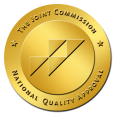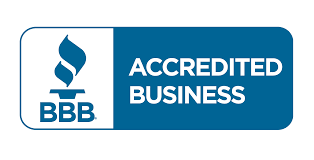

Trauma and substance abuse can go hand in hand in some cases. Often, individuals who have experienced trauma turn to the use of drugs and alcohol as a means of coping with their triggers and emotions surrounding the experience.
Furthermore, trauma can be life-altering, and it can lead to distressing and severe impacts to the daily life of the person who has experienced it. Learning positive, healthy ways of coping with trauma can help the healing process, as well as help prevent relapse in those who struggle with substance abuse as a result of experiencing trauma.
Trauma is something that many people across the United States face daily. But what is trauma and why is it so impactful? Trauma refers to any physically or emotionally distressing situation that is beyond the individual’s capability to cope. Different kinds of trauma can be experienced. Sexual or physical assault can lead to trauma, as well as prolonged abuse or neglect. Other factors that can lead to trauma include natural disasters, the sudden death of a loved one, or witnessing violence.
More often than not trauma can prove to be extremely difficult to cope with. This can lead to an individual turning to drugs and 12>alcohol as a means of coping. Many people struggle with trauma and substance abuse can lead to further impacts to their life. Self-medicating the symptoms of trauma responses with substances can cause more damage rather than helping to relieve the symptoms.
Trauma can cause post-traumatic stress disorder, or PTSD, which is a mental health condition that occurs as a result of experiencing trauma.
Using drugs and alcohol to cope with trauma can result in dependence on the substances. This results in co-occurring disorders. Trauma and substance abuse co-existing in one individual is known as 12>dual diagnosis. It is essential to address both conditions, simultaneously, to achieve the best results.
Leaving the mental health condition untreated can result in the person returning to the substances to cope with feelings and emotions that can arise as a result of the condition. Treating both at the same time can promote healing from trauma, while simultaneously teaching necessary life skills to combat dependence and addiction to the substances.
Like any condition, substance abuse disorders have risk factors. These risk factors include various social, environmental, biological, and psychological influences. Biologically, genetic predisposition for substance abuse can play a significant role in whether or not someone turns to substances to cope.
Psychological influences can include trauma, low self-esteem and mental health conditions. Socially, individuals often feel peer pressure to use substances, which turns into a much larger issue. Environmental factors can include socioeconomic status as well as unstable home environments.
12 nofollow noopener noreferrer3>Childhood trauma and substance abuse often go hand in hand. Individuals who have experienced prolonged trauma as a child often have difficulty knowing how to cope with their experiences properly. With continued use of drugs and alcohol to cope, dependence can occur.
As dependence occurs, the individual may have quite a difficult time stopping the use of the substances, resulting in addiction. This can result in needing professional care to overcome the addiction to substances and heal from the trauma.
Many children across the country live in an unstable environment. This includes a parent struggling with substance abuse and trauma for the children as the outcome. If a child’s parent abuses drugs and alcohol, the child could potentially turn to these substances themselves as a means of coping with the stress.
Drugs and alcohol may seemingly relieve some of the stress. However, in the long run, it can lead to damaging effects.
12>Trauma therapy is a beneficial form of treatment for overcoming and healing from trauma and substance abuse. It is crucial to learn how to cope and manage symptoms of trauma responses to fight substance abuse. If this does not occur, the risk of relapse is greater.
Healing trauma through proven therapy approaches can help someone to learn positive and healthy ways of alternatively addressing distressing situations in their life.
For those who struggle with trauma and substance abuse, help is available. As an individual continues to use drugs and alcohol, the body becomes dependent on them. When they are abruptly stopped, the person then begins to experience withdrawal symptoms. At that point, the person could benefit from a professional medical detox.
This helps them to undergo the detox process while managing the uncomfortable and potentially dangerous symptoms and being as comfortable as possible. Detox also helps to increase the rate of successful recovery from trauma and substance abuse.
Trauma can be a trigger for individuals to turn to substances like drugs and alcohol to cope. It can lead to a seemingly never-ending cycle that can be extremely difficult to break free of. But, healing can make a world of difference in the lives of individuals who have experienced trauma.
If you or a loved one are struggling with trauma that could have contributed to substance again, there is help available. At Louisville Addiction Center our team of professionals helps individuals learn to live without substances and begin healing from trauma.
12>Call us today and begin a new journey of healing.









Hear directly from those who have walked the path to recovery. Our patients’ stories highlight the compassionate care, effective programs, and life-changing support they’ve experienced. Let their journeys inspire you as you take your first steps toward healing.